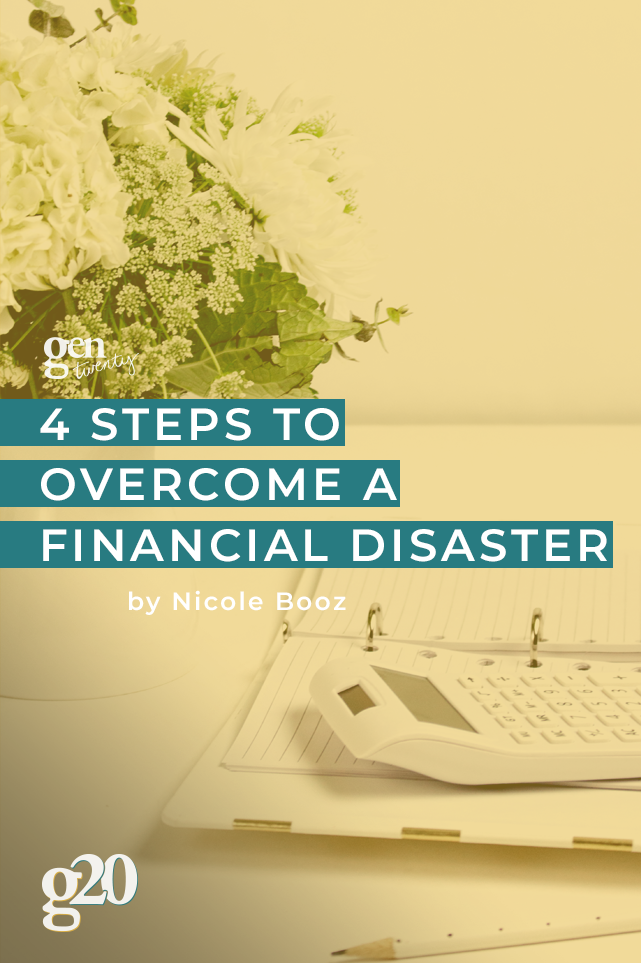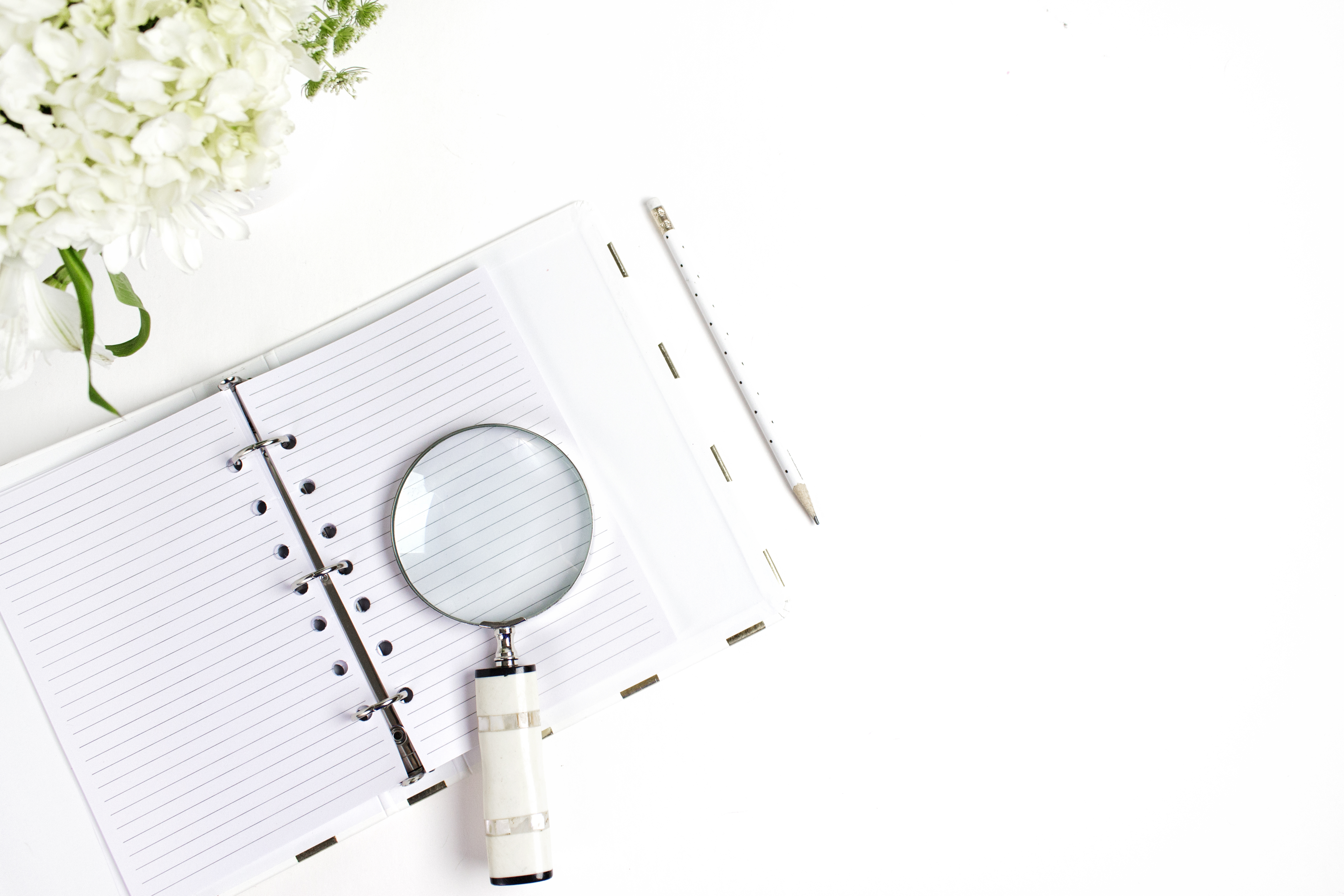This post is sponsored by Lexington Law. This post was originally published on August 27, 2018.

At one point or another, most of us will face a financial crisis. When a financial disaster does happen to you, don’t throw in the towel! You have options and steps you can follow to get back on track. It won’t always be easy and will require you to be extra vigilant when it comes to your finances. You’ll also need to make very difficult decisions in the process of recovering from a financial disaster. Consider all of your options, and how they impact you in the short term and long term, before moving forward.
Keep in mind, not all financial disasters are created equal. And not all reactions are created equal. Your unique financial situation, disaster, and reaction will look differently from someone else’s. Use this framework to respond and recovery in a way that works for your situation.
How To Overcome a Financial Disaster
Whether it’s a large amount of debt, going well over budget, an unexpected healthcare expense, stolen identity, divorce, job loss, or an accident, among other things — it’s can happen to anyone. There are varying levels of severity of financial disasters, much like categories of a hurricane. The impact of these upsets will depend very much on your current financial situation — including your income, assets, debt, and credit score.
1. Reflect and evaluate what went wrong.
Do you know what specifically led you to the financial disaster you are facing? Overspending during the holiday season may have led you to spend beyond your means. Buying a home you couldn’t afford, missing several car payments, or lapsing on insurance are also larger examples of poor financial decision-making.
Ask yourself the following questions:
- What is wrong with my financial situation now?
- Was there something specifically led to me being in this situation?
- What is my immediate thought to fix the situation?
- Is there something I could have done differently to protect myself?
- What will I be doing differently a year from now?
Knowing the answer to these questions will be invaluable in determining your recovery plan.
Here are a few sample answers for the sake of an example:
- What is wrong with my financial situation now? I am facing a $15,000 bill for home repairs due to flooding.
- Was there something specifically led to me being in this situation? A rare rainstorm from my area flooded my basement and cause foundational damage.
- What is my immediate thought to fix the situation? I cannot live in an unstable home, so the repairs will have to be immediate. With only have $8,000 in my home savings account, I will likely have to take out a loan for the additional amount.
- Is there something I could have done differently to protect myself? I could have have flood insurance.
- What will I be doing differently a year from now? I will pay an additional premium for flood insurance to be covered to reduce the amount I will need to pay out of pocket in the event this happens again.
Be clear on what happened and how to best prevent it in the future so that you can make a recovery plan that will help you now and protect you later.

2. Make a recovery plan.
When considering how you will recover from what has happened, make sure to take into account both short term and long term fixes. It may be tempting to go for a quick fix without giving any thought to how those fixes will impact you in the future.
It’s best to start small, specifically with steps one and two below, before considering additional options.
-
- Adjust your budget and spending. First things first, cut back on additional and unnecessary spending. Until you can begin implementing your recovery plan, your spending needs to be as low as possible. If it already is, consider your options for increasing your income through an additional job or side hustle. And do not take on any additional expenses that you cannot afford! This is a smart guide to fixing your situation.
- Sign up for identity monitoring: When a financial disaster strikes, your attention will most likely be focused on that specific issue and not on other aspects of your finances. An identity monitoring service like Lex OnTrack will give you peace of mind as you begin to repair your finances. This tool will give you access to your monthly FICO score and score analysis, $1,000,000 in identity insurance, credit repair as needed, and additional finance tools. You’ll be alerted quickly if anything is amiss. The last thing you want when dealing with a financial disaster is another financial disaster. Click here to learn more and sign up.
Consider your options.
Before making any hasty decisions, map out how your choices will affect you both in the short term and in the long term.
-
- Debt consolidation: There are many pros and cons you will want to consider before consolidating your debt. If you are hoping for simplicity, this may not be the option for you as lenders will profit more on your consolidated debt. Make sure to crunch the numbers and consider how consolidation will affect your future finances.
- Bankruptcy: Like debt consolidation, filing for bankruptcy is not a decision to ever be taken lightly. You will need to consider your core goal for filing for bankruptcy. Even the act of filing for bankruptcy can stay on your credit report for 10 years. Be sure to thoroughly know the statutes and limitations around bankruptcy, as it could be nothing like what you expect it to be.
- Selling property or assets: Another option you have is selling a property or asset for additional funds. Cashing out a few stocks, selling your home to downsize or rent instead, or even selling a car you no longer use are things to consider. Take the time to map out how your life would change 10 to 15 years down the road if you did not sell these assets now. If you have other means of overcoming a financial disaster, this may not be your best option at the moment.
- Taking out a loan: Depending on your credit situation, this may be a good move. With a low interest rate and monthly payments that work with your budget, you may be able to pay off the loan quickly. You could also improve your credit along the way. Do be very mindful of interest rates and loan terms. Private loans are often far more costly in the long-term. Do your research and be very considerate of additional upcoming expenses.

3. Repair your credit.
One thing most financial disasters have in common is that they can wreak havoc on your credit. There are very few financial disasters that won’t impact your credit or leave behind unfair negative items. Repairing your credit is an essential part of the financial recovery process!
Your first step is to obtain a copy of your credit report. Thank to the Fair Credit Reporting Act (FCRA), you are able to obtain your credit report for free from each of the three major credit bureaus. Annualcreditreport.com is the place to do so. Go over your report with a fine toothed comb and note anything that is inaccurate.
If you find that nothing is out of place on your credit report, there are several steps you can begin taking in the next 6 months to improve your credit score.
On the other hand, if you are finding incorrect information and unfair negative items, it could be time to contact credit repair specialists. There are some issues with your credit report that you may be able to resolve on your own. However, because nearly 79% of credit reports contain errors, many of these errors go unnoticed and unresolved. Taking the time to repair your credit will give you a strong financial foundation to stand upon.
Having credit repair specialists who are intimately familiar with your credit rights who will advocate on your behalf is an invaluable resource in the time of financial crisis. Reach out to the team at Lexington Law for a consultation to see if credit repair is right for you.

4. Protect yourself for the future.
You won’t always be able to protect yourself from financial problems. Yet there is plenty to be learned from your financial disaster.
After reflecting on your situation, you will have insight into how to avoid a similar impact in the future. Your first step should be to build an emergency fund and a plan for the future. Next, consider what insurance options may be right for you. Insurance can lessen the burden or even eliminate the out of pocket cost in an financial emergency. Investing may also be something to consider to build your nest egg.
And perhaps most importantly, think critically and long term about how your financial decisions today affect your future.
Using this framework to recover from a financial disaster will put you back on the path to financial recovery. At a time when you are financially vulnerable, the sooner you can make a recovery plan, the better off you will be.
